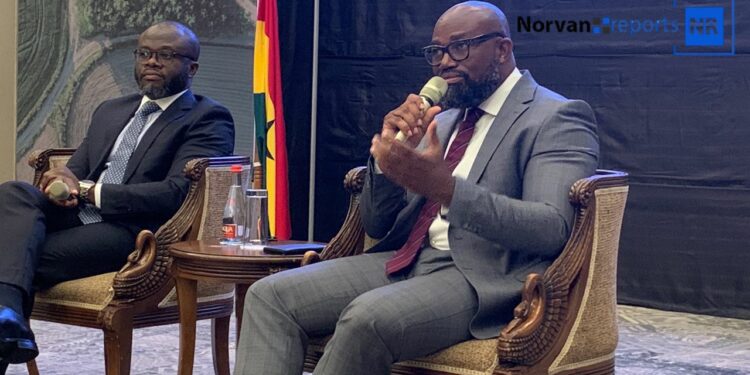McDan eyes 4 vessels, 2 cargo planes for AfCFTA trade
Chief Executive Officer (CEO) of the McDan Group of Companies, Daniel McKorley, is looking at securing four (4) shipping vessels and two (2) cargo planes to facilitate trade on the African Continent.
The move to secure 4 vessels and 2 cargo planes by the business magnate for trade facilitation under the AfCFTA, is on the back of a signed Memorandum of Understanding (MoU) between the AfCFTA Secretariat and McDan Shipping Limited.
The MoU is to signify the beginning of a partnership to facilitate trade among African countries.
This grants McDan Shipping the opportunity to load and transport goods across AfCFTA member countries.
The agreement was signed on Friday, October 7, 2022 at the McDan Private Jet Terminal in Accra, during the launch of the AfCFTA Guided Trade Initiative which also marked the celebration of the 2nd anniversary of the AfCFTA Agreement.

According to Mr McKorley, it is necessary that vessels and cargo planes used to transport goods across the Continent under AfCFTA, are owned by Africans and not foreigners.
Vessels and cargo planes owned by foreigners and used for AfCFTA, he noted, will result in high cost of transport of goods.
“If we fail to own our vessels and cargo planes, prices will skyrocket, because if we rely on the foreigners to do that for us, cost of doing business in Africa will be very high although will be trading under AfCFTA,” he noted.
Mr McKorley made the above assertion speaking as a panelist on the 6th Edition of the UPSA-ACCA Africa Trade Roundtable themed Infrastructure, Supply Chain Systems and the AfCFTA on Monday, October 24, 2022.
The UPSA Africa Trade Roundtable brings together intra-African trade experts, government officials, international trade and commercial law experts, policy makers and scholars from across the world to discuss the pertinent issues arising out of the implementation of the African Continental Free Trade Area (AfCFTA).
The AfCFTA which kickstarted January 2021, is the largest single trade bloc in the world with an estimated $3 trillion GDP value and 1.3 billion market (population of Africans).

Under the agreement, AfCFTA members are committed to eliminating tariffs on most goods and services over a period of 5, 10, or 13 years, depending on the country’s level of development or the nature of the products. General long-term objectives include creating a single, liberalised market; reducing barriers to capital and labor to facilitate investment; developing regional infrastructure; and establishing a continental customs union.
The overall aims of AfCFTA are to increase socioeconomic development, reduce poverty, and make Africa more competitive in the global economy.
The United Nations Economic Commission for Africa estimates that AfCFTA will boost intra-African trade by 52 percent by 2022. A report by the World Bank anticipates that AfCFTA could lift 30 million Africans out of extreme poverty, boost the incomes of nearly 70 million people, and generate $450 billion in income by 2035.
On January 13, 2022, AfCFTA took a major step towards its objective with the establishment of the Pan-African Payments and Settlements System (PAPSS), which allows payments among companies operating in Africa to be done in any local currency.







